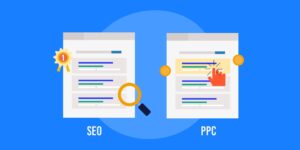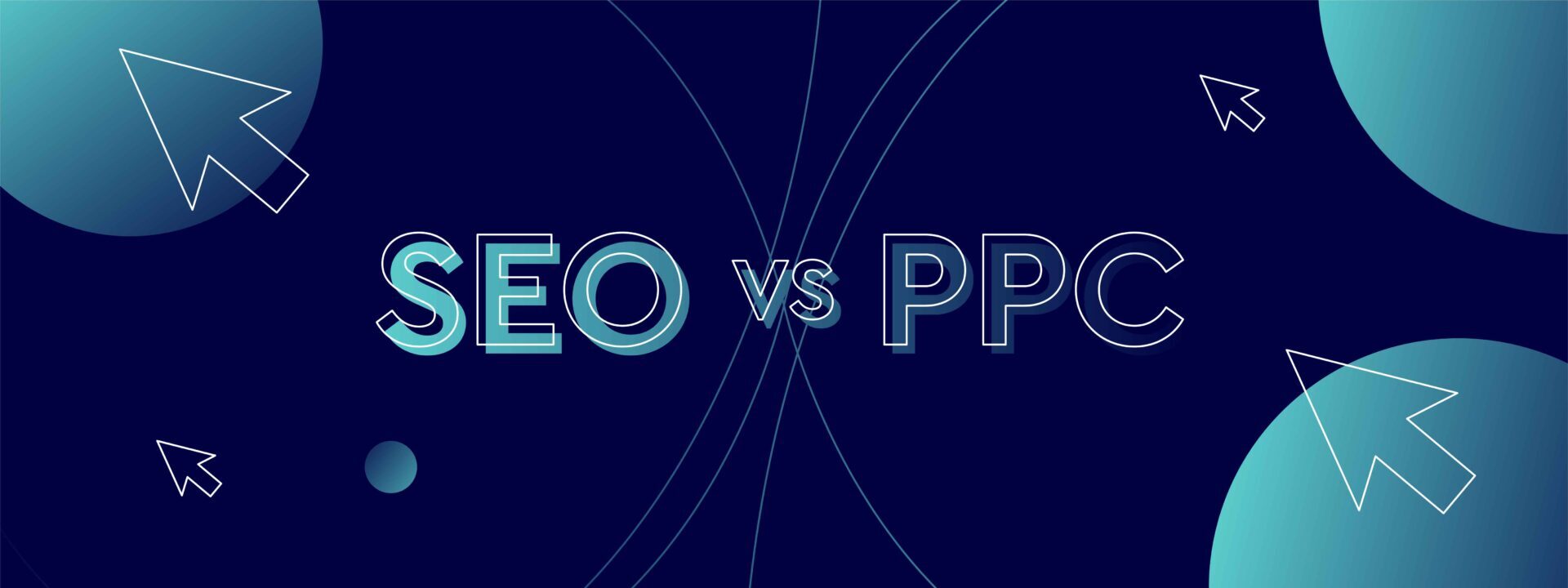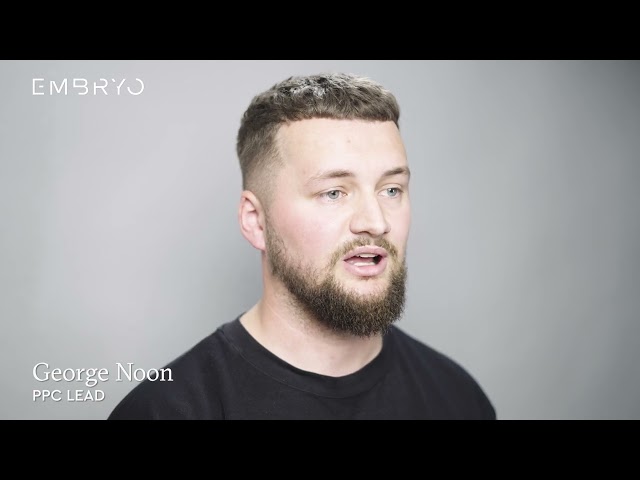SEO vs PPC. It’s a huge debate amongst businesses’ marketing teams – and honestly, it’s still a big topic on our side of things too.
At Embryo, we don’t think that Organic SEO and PPC teams should be put head-to-head when it comes to competing for your budget. Instead, the two work better together as part of a multichannel strategy – something we’ll cover in the following guide.
Read on to learn more about how both channels can boost your online presence and potential. If you’re determined to convert as many clicks into solid leads with a set budget, then combining the two is always better than one.
In this guide, we’ll give you our stance on the matter, with thoughts on some of the more common scenarios our internal teams of industry-leading SEOs and award-winning PPC experts are often faced with.
So, let’s start with the bread and butter of both channels: visibility.
SEO and PPC, what’s the difference?

Let’s start with the basics. SEO is the process of optimising your website to appear higher on the search engine results page (SERP). These methods increase website visibility and drive organic traffic to your site. However, PPC uses paid ads and is a form of advertising on the search engine and other online platforms. Advertisers will pay a fee when a user clicks on one of their ads. So essentially, one uses organic methods to gain clicks and traffic to the site, and one uses a paid method to place ads on the SERP or social platforms.
Which one maximises online visibility best?
There’s a lot of back and forth between visibility as one of the main differences between PPC and SEO. At the moment, with paid ads coming before organic results for the most competitive keywords – combined with the recent introduction of expanded text ads – paid ads appear to rule above-the-fold search results.
In addition, for high commercial intent keywords, paid search listings appear to attract more clicks than organic search listings. When combined with SEO, which ensures organic rankings still populate the search, it shows how different channels can sway the user in the search process – and ultimately, the sales funnel.
A solid SEO strategy can improve click-through rates with useful content during the messy middle navigation phase, while PPC gets a business seen and sold when a customer wants to buy now.
Together? A match made in heaven that targets both users.
Is sharing critical data useful between two channels?

For any campaign, organic or otherwise, keywords are crucial. However, Google no longer provides many organic search terms, so determining the things that actively – and organically – drive to your site is restricted.
This can be easily smoothed, however. SEO teams utilise the Search Terms report in Adwords – a resource that is used day in, and day out by PPC teams.
Although certain metrics have to be met for terms to begin appearing in the report, it can be incredibly useful when it comes to deciding which terms should inform intent-led content.
Plus, Adwords campaigns can be set up fast, helping your team amass data that can also improve SEO efforts.
Choosing to split-test different PPC headlines and descriptions can also provide inspiration for a site’s heading, title and description tags. Keeping an eye on the terms that drew the most PPC conversions and integrating them properly into an organic strategy can also boost revenue.
Does PPC also minimise bounce rates?

One of the three factors determining each keyword’s Quality Score is landing page experience – something that PPC relies on SEO-led content to get right.
The two teams can work together with a content writer to ensure the landing page itself matches the message behind the copy in the ad text. Having a clear follow-through can staunch unwanted bounces, improving the user experience and ultimately, bringing down the cost-per-click.
Can they bring back visitors who didn’t convert first try?
A conversion from a single visit is not the norm. It’s said that 96% of organic search traffic visitors do not convert on the first visit, especially when the vast majority of searches have an informational search intent.
When your user is high up in the sales funnel, that’s where PPC truly shines, bringing visitors to your website with a strong remarketing strategy.
In essence, use a dual-pronged strategy with organic actively driving visitors to your content and becoming brand aware over time. Then, target them with remarketing with the help of your dedicated PPC team and see those sales come pouring in.
Have a listen to George, our PPC lead, explaining how SEO and PPC can complement each other.
Final thoughts
You shouldn’t be debating between PPC and SEO. Your search visibility will be significantly reduced if you ignore SEO or PPC, and handling them as two distinct processes will isolate important data and significantly impact your overall presence online.
Choosing to combine the two gives you a far higher return on investment, as well as a greater understanding of your audiences and important conversion touchpoints.
If you’d like to chat with our in-house experts and find out how we can transform your sales funnel, get in touch with us today.
Deeper insights
- 10 reasons to work with a PPC specialist
- 6 ways to target the right audience with google ads
- The Profitable Social Media Sales Funnel
FAQs
Answered by Claire-Marie Wilder
Is SEO or PPC more expensive?
Typically, PPC is more expensive as it involves bidding, and bidding on competitive keywords can be expensive. However, good SEO requires long-term efforts and experienced people to exercise best practices, so it can be hard to quantify what will end up costing a business more. SEO requires more time for long-term gain, but PPC requires more upfront costs for short-term gain.
How do I pick the right SEO or PPC agency?
You need to pick an agency that sees exactly what your business needs and can match your goals. Have a look at their case studies and previous successes, and get familiar with the team to see if they’d be a good fit for you. Someone who sells you the dream is likely a red flag, and so is an agency that uses black-hat techniques. You also need an agency with good communication and someone who can be transparent in how your site is performing.
Is PPC worth it if my website isn’t optimised?
It depends on the industry and what your competitors are doing. PPC and SEO work great together, where PPC is a great way to spend money to make money, SEO is more of a longer-term strategy for organic traffic and visibility. You can carry out SEO while you have PPC up and running, however, you need to have user experience in mind when carrying out PPC and make sure you have no poor landing pages that are not going to cause high bounce rates and low engagement.
Is it hard to rank on page 1 with PPC ads taking so much room?
PPC ads don’t make a difference in your rankings. You may have fewer clicks than you expect, as the PPC ads take up more space on the SERP. Also, it is not just ads, this can be AI features, GMB features, PAA, FAQs, Images etc.
Is SEO an ongoing process or a one-off project?
SEO is an ongoing process. There are always tweaks and optimisations to be made. It’s highly unlikely to be in #1 for every keyword you want. and in that position 1 forever. Keep building authority and content through blogs. Your competitors never stand still so you shouldn’t either.














